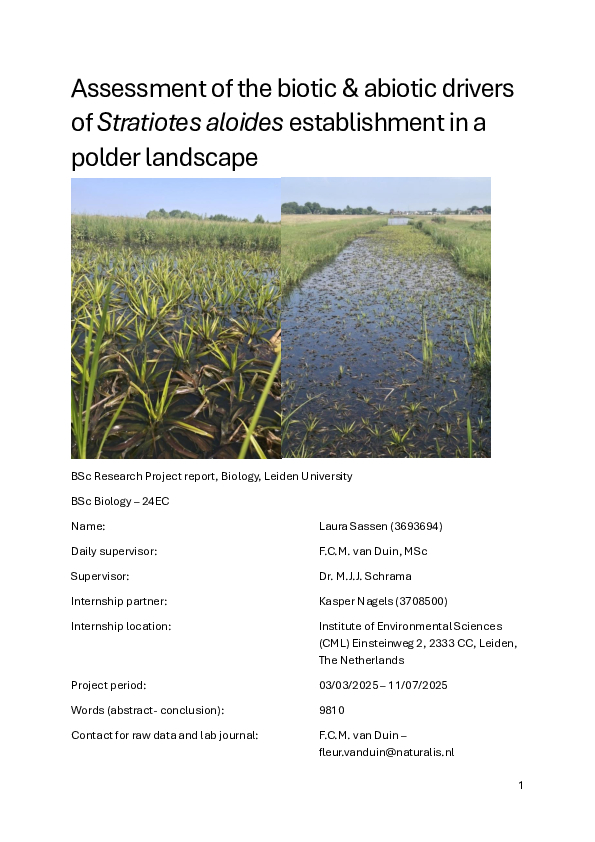
Some ditches become overgrown by water soldier within one season. In others, water soldier struggles to settle. Why is that? BSc student Laura Sassen investigated what could be driving this.
Download document »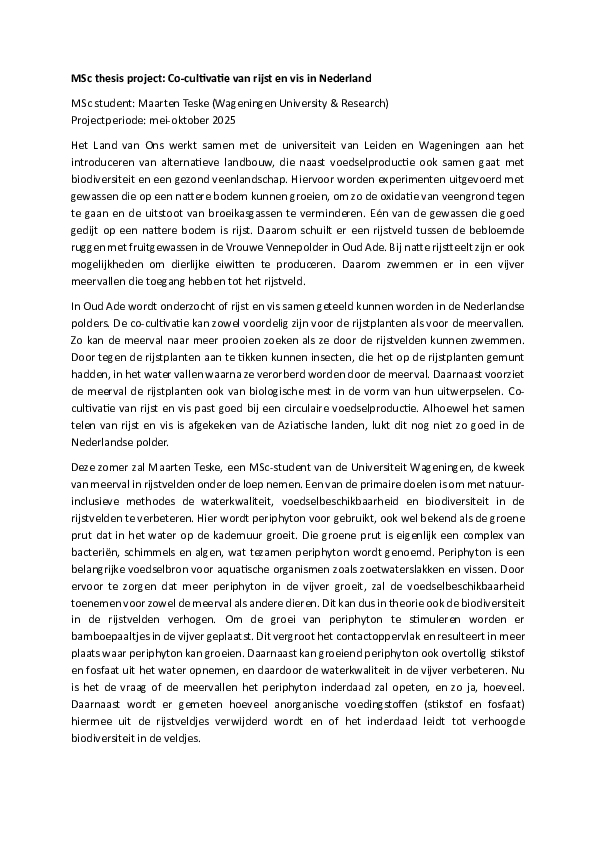
It's common practice in Asia: fish swim between rice plants. The fish eat pest insects, fertilise the crop and ultimately provide animal protein. Win-win-win. Does this work in our Dutch system as well?
Download document »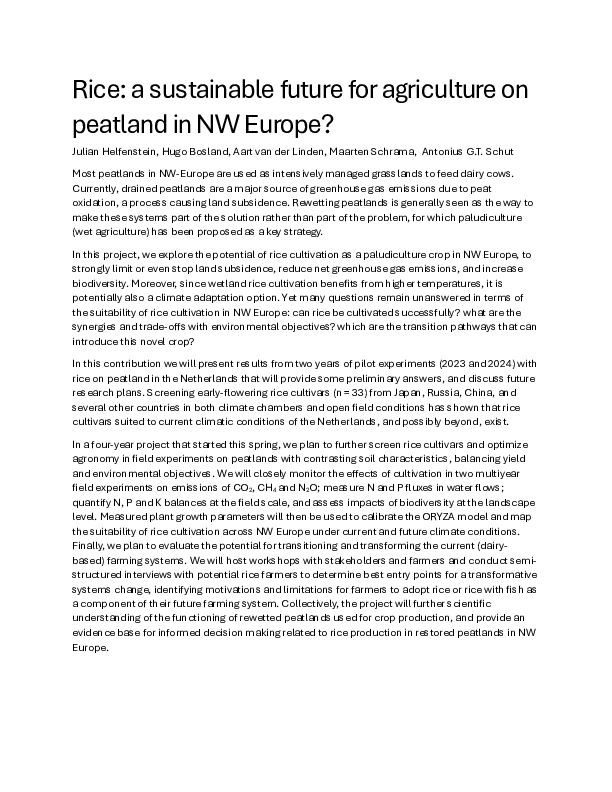
In a four-year project, starting spring 2025, researchers will investigate the suitability of rice cultivation in Northwest Europe. They will explore the agronomic, environmental and social aspects of this cropping system to assess its potential.
Download document »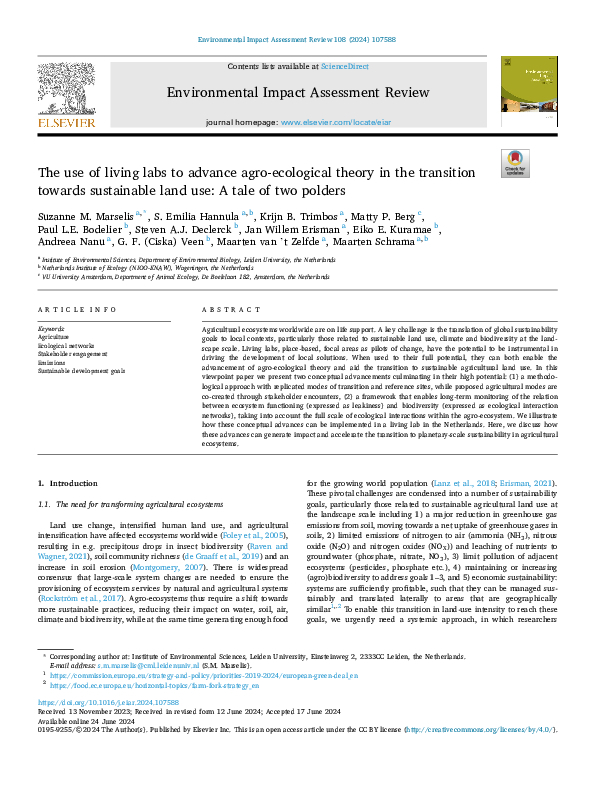
Real-world testing grounds enable the translation of scientific theories into agricultural practices. Because of this, the polderlab plays an important role in the transition towards sustainable agriculture.
Download document »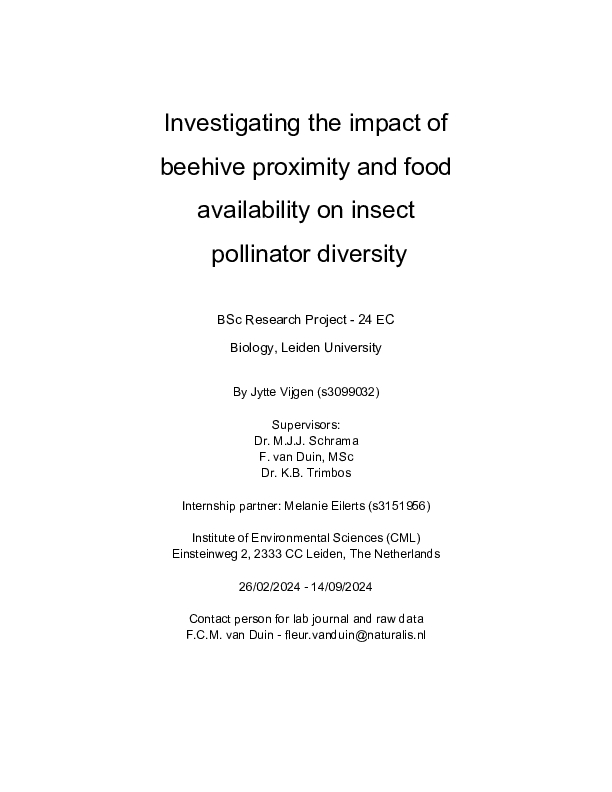
Are there sufficient numbers of wild bees present to pollinate the new crops in the polder? Would honey bees contribute or disrupt? BSc student Jytte Vijgen explored the matter.
Download document »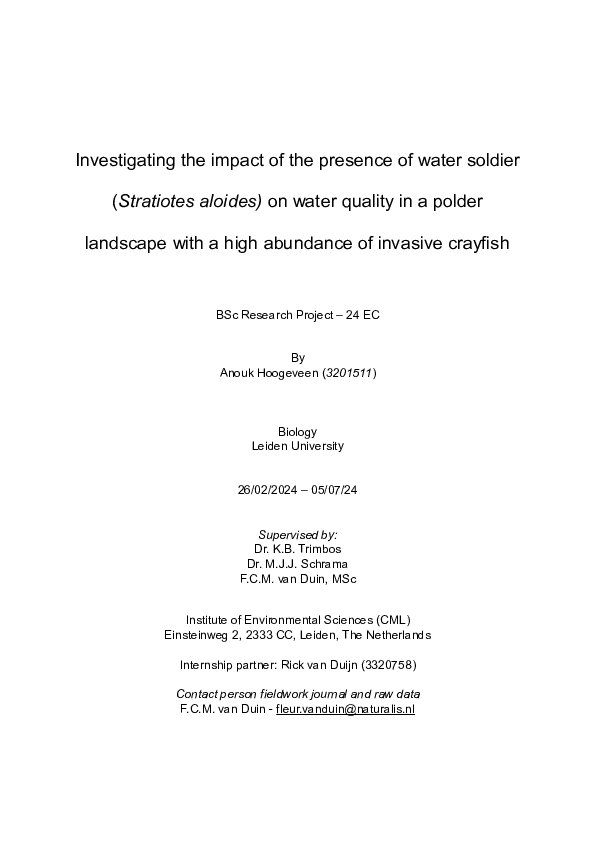
Can water soldier improve water quality despite pressures of invasive crayfish? BSc student Anouk Hoogeveen investigated the impact of water soldier on chemical and ecological water quality in the polderlab ditches.
Download document »